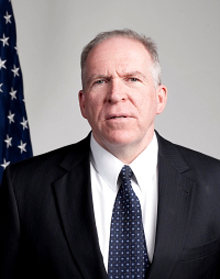
The Choices Brennan Will Face at CIA
 ASP Fellow Joshua Foust wrote for PBS Need to Know about the decisions and choices John O. Brennan will encounter as he steps up to lead the CIA.
ASP Fellow Joshua Foust wrote for PBS Need to Know about the decisions and choices John O. Brennan will encounter as he steps up to lead the CIA.
President Obama’s nomination of John O. Brennan, his Deputy National Security Adviser for Homeland Security and Terrorism, to head up the CIA has drawn criticism from many. What critics miss, however, is the most important angle to Brennan’s nomination; it offers the best chance at reforming the Agency.
Over the last decade, the CIA has become unbalanced in its mission and outlook. While paramilitary operations have always been one of its duties (its predecessor during World War II, the Office of Strategic Services, was almost exclusively paramilitary), the War on Terror has pushed the agency to embrace paramilitary operations to an extraordinary degree. In many ways, the covert killing the Agency performs has become its primary mission – or at least its most visible. Brennan needs to focus on re-balancing the CIA.
Ideally the National Clandestine Service (NCS), an organization within the CIA, carries out a range of missions including “traditional” spy craft, such as developing and handling human sources for intelligence. Therefore, paramilitary and terrorist targeting should be but one part of the CIA’s greater mission-carrying out intelligence analysis and developing high technology for other forms of spying is imperative work to be done in conjunction to that of the NCS.
Yet ever since the September 11 attacks, the CIA has become increasingly focused on the mission of hunting down suspected terrorists and killing them. There are clear downsides to this focus. For example, the Agency risks missing relevant information that does not drive the targeting process.
Brennan has been instrumental in expanding the use of drones for targeted killings – first in Pakistan and later in Yemen. Close associates have also said Brennan was equally instrumental in limiting the size and scope of the CIA’s drone program. It’s not fair to say Brennan is an uncritical booster of expanding the drone strikes, but it’s also unclear which direction he’ll take the Agency once he’s in charge. In private, officials have told reporters that Brennan is behind a push to shift many drone activities from the CIA to the military, which operates under a different set of laws and has different reporting requirements to Congress and the public.
If David Petraeus, the CIA’s previous director, is an indication of Brennan’s potential role, he could tamper drone usage; despite the widespread belief that Petraeus spent most of his time running the drones program, officials insist he actually served as a brake on the controversial tactic of “crowd-killing” in Pakistan.
Whatever Brennan decides to do, the need for reform is growing. The last two years have been marked by game — changing events the CIA should have anticipated – the Arab Spring movement and last September’s assault on the U.S. diplomatic outpost in Benghazi, Libya among them.
The CIA has had its priorities misplaced before. One major reason the CIA failed to foresee the collapse of the Soviet Union was too narrow a focus on pieces of information. This type of tunnel vision meant the Agency overlooked the large-scale social movements driving change there. So busy looking for ways to counter the Soviet Empire, the Agency missed the decay that reached a breaking point in 1991.
It is unrealistic to demand the CIA be more public about its activities. Rather, Brennan could oversee a shift in focus that would transform the CIA’s position in the intelligence community. Demanding a complete end to CIA paramilitary operations is as unrealistic as demanding they be more open about what they do. But the Agency does need to re-balance its priorities. The decade long wars are ending, and the threat is changing; so too should the U.S.’s premier spy agency.
To that end, the CIA (and the Intelligence Community) should shift primary responsibility for covert drone operations to the Joint Special Operations command, while they move to strengthen their analytic and intelligence collection programs. Such an alteration would make the CIA more effective.
Brennan will face an immediate choice upon becoming D/CIA. Before his retirement, David Petraeus requested an expansion of the CIA’s drone fleet. John Brennan was the official in charge of evaluating that request. Once confirmed, Brennan should withdraw that request and instead seek to expand the agency’s collection and analysis efforts.
Moderately scaling back paramilitary activities to refocus on collecting intelligence for a broad range of emerging social, political, economic, and security challenges would address many shortcomings the War on Terror has exposed.







[…] The Choices Brennan Will Face at CIA […]